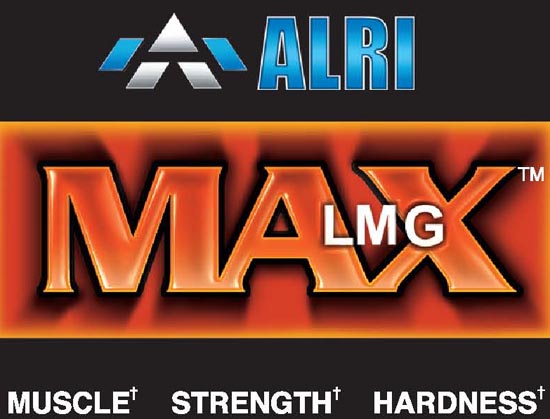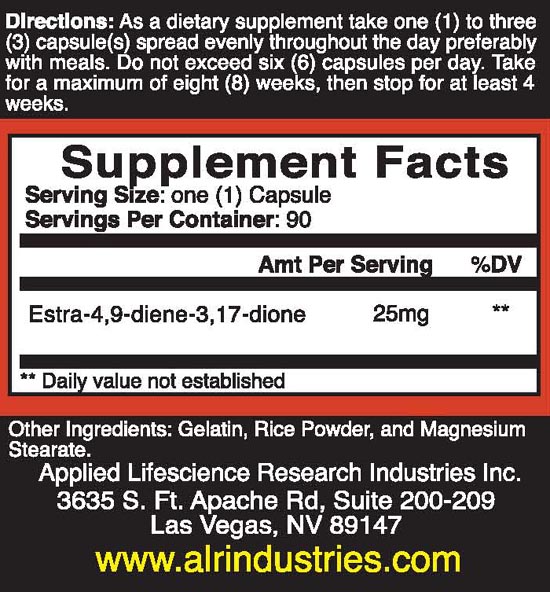
Former NFL running back Femi Ayanbadejo settled his lawsuit against ALR Industries in a confidential agreement. ALR Industries (ALRI) has NOT admitted wrongdoing. ALRI is proceeding with its defamation lawsuit seeking punitive damages against Ayanbadejo for his irresponsible and false statements alleging that ALRI spiked its supplements. Ayanbadejo tested positive for an ingredient clearly listed on the label of ALRI Max LMG during a doping test conducted by the National Football League (NFL) (“Ex-Aztec, company settle dispute over supplement’s label,” May 20).
Sometimes athletes have a valid claim against these companies, and sometimes they don’t, said Charles Weller, attorney for ALR Industries. This was a perfect example of a situation where we don’t have a valid claim. Ayanbadejo tested positive for exactly what was on the label of Max LMG. In trying to save his career, he chose to point fingers at the supplement company. He took a dietary supplement without doing his due diligence.
Ayanbadejo publicly told reporters that ALR Industries knowingly added a banned substance and intentionally failed to disclose it on the label of Max LMG. Jim Miller, Ayanbadejo’s attorney, blamed Ayanbadejo’s failed steroid test on either a cross-contaminated or intentionally spiked supplement. However, Ayanbadejo and his lawyer never submitted any evidence to support allegations that Max LMG was cross-contaminated or spiked.
An evaluation of the Max LMG label easily proves the LISTED ingredient(s) account for the failed test.
Femi Ayanbadejo tested positive for 19-noradrosta-4, 9-diene-3, 17-dione and 9(10)-dehydronandrolone (publicly described as a “form of nandrolone”) in a January 24, 2007 urine test administered by the NFL.
The ALRI Max LMG label prominently listed “estra-4, 9-diene-3, 17-dione” as an ingredient. “19-Noradrosta-4, 9-diene-3, 17-dione” is well-known in the scientfiic community as a synonym for “estra-4, 9-diene-3, 17-dione”. Furthermore, “9(10)-dehydronandrolone” is a known urinary metabolite of “estra-4, 9-diene-3, 17-dione”.
This clearly accounts for Femi Ayanbadejo’s positive steroid test.
The owners of ALR Industries filed a cross-complaint against Obafemi Ayanbadejo for defamation in December 2008. ALRI’s allegations of defamation and libel are outlined in court documents.
Plaintiff orally published false statements to third parties blaming Cross-Complainants for Plaintiff’s failed drug test, subsequent suspension and release from the NFL, and inability to find current employment as an NFL player. Plaintiff has told third parties, including journalists and television reporters that Cross-Complainants deliberately put a banned substance into the Max LMG supplement bottle which they deliberately did not mention in the supplement ingredients list. Additionally, Plaintiff told others that the Max LMG supplement was not properly labeled and led to his positive test. He even told USA Today, I think the Company was trying to be cute by creating something that mimics a banned substance . . . it was labeled and nothing harmful was listed. Plaintiff also told the San Diego Union Tribune which reported on March 12, 2008, that ALRI’s supplement was tainted and had a banned substance in it that was not listed on the bottle. In falsely accusing Cross-Complainant, he told www.steroid.com that, Guys take certain things and [the makers] just change a molecule [in] it and it’s no longer that substance, but it’s something else that’s related to it and that, when you do a test it comes up in your system as a substance they’re trying to create. He said, it’s a designer form of an illegally banned substance. Moreover, in a testimonial for LifeWave energy enhancer, Plaintiff claimed that he had, taken a supplement for three weeks with a banned substance that was deliberately put into the bottle by the supplement company and also deliberately unmentioned in the supplement’s ingredient list.


About the author
Millard writes about anabolic steroids and performance enhancing drugs and their use and impact in sport and society. He discusses the medical and non-medical uses of anabolic-androgenic steroids while advocating a harm reduction approach to steroid education.

Leave a Reply
You must be logged in to post a comment.